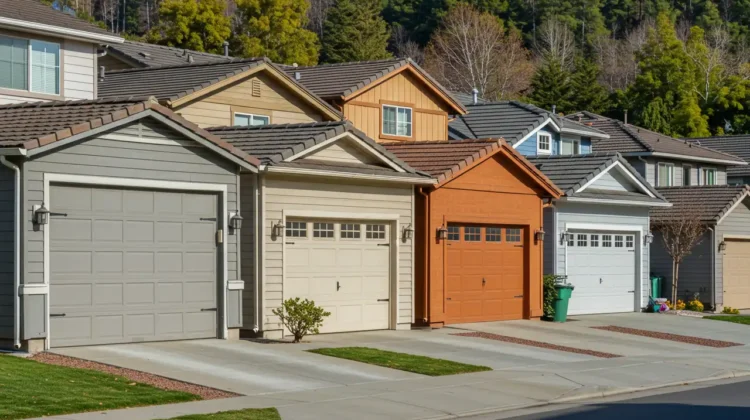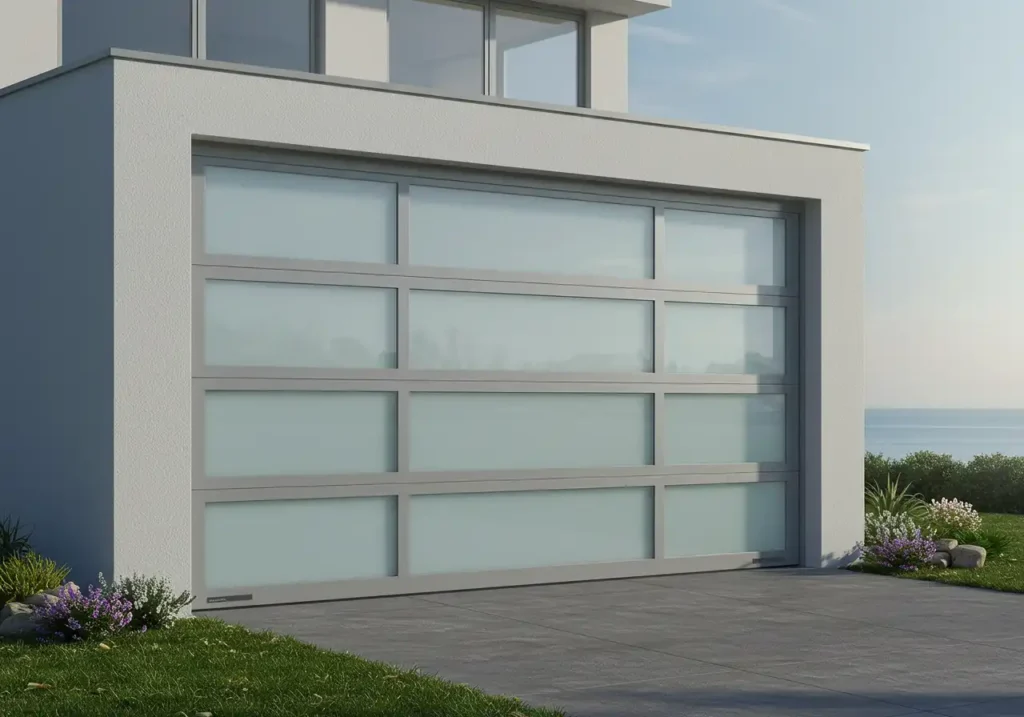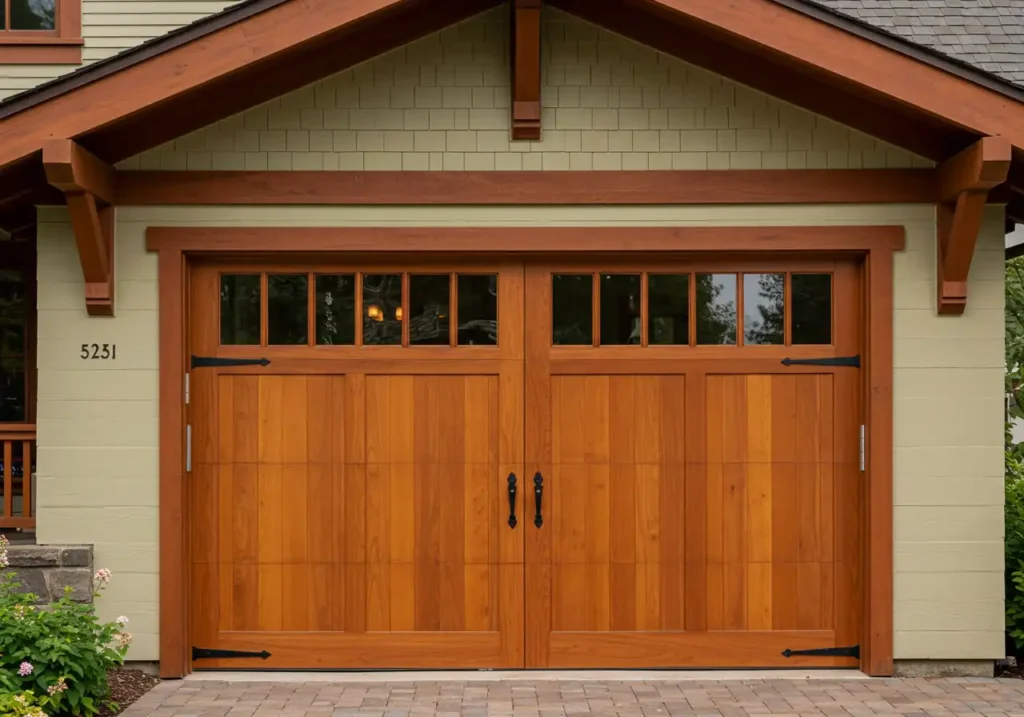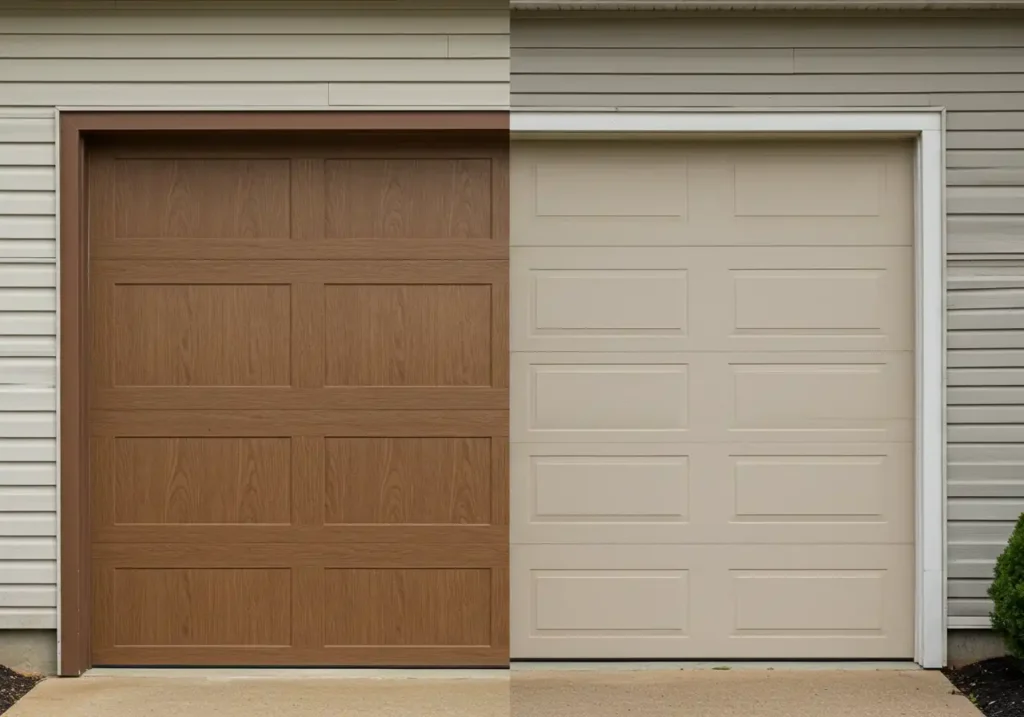
Your garage door plays a major role in your home’s appearance, energy efficiency, and overall security. Whether you’re building a new home or replacing an aging system, selecting the right garage door material can make all the difference. With options ranging from durable steel to elegant wood or lightweight aluminum, each material offers unique benefits and considerations. In this guide, we’ll help you understand how to choose the best garage door for your home’s needs and local climate.
Why the Material of Your Garage Door Matters
Garage doors account for a significant portion of your home’s exterior, often influencing curb appeal as much as the front door itself. However, appearance is only one factor — durability, insulation, maintenance, and weather resistance are equally important. The material you choose can affect:
- Energy efficiency: Insulated materials can help regulate your home’s temperature.
- Maintenance costs: Some materials, like wood, require regular care, while others, like steel, need minimal upkeep.
- Longevity: Certain materials handle humidity, rain, and salt air better than others.
- Security: A strong door can deter break-ins and protect your property.
1. Steel Garage Doors: The Durable All-Rounder
Steel garage doors remain the most popular choice among homeowners for good reason. They’re tough, low-maintenance, and available in a wide range of designs and finishes. Modern steel doors are typically made from galvanized steel with insulation layers for noise reduction and energy efficiency.
- Best for: Most climates, especially regions with temperature fluctuations.
- Pros: Extremely durable, resistant to warping and cracking, available in insulated versions.
- Cons: Can dent under impact; may rust if the protective coating wears off.
Tip: Look for steel doors with multiple layers (24-gauge or thicker) for superior strength. Adding polyurethane insulation can improve durability and efficiency.
2. Aluminum Garage Doors: Lightweight and Modern

Aluminum doors offer a sleek, modern look ideal for contemporary homes. They’re lightweight, resistant to corrosion, and often paired with frosted glass panels to maximize natural light.
- Best for: Coastal or humid regions where rust is a concern.
- Pros: Lightweight, resistant to rust, customizable with glass inserts.
- Cons: Easier to dent than steel and less insulated unless upgraded.
If you live near the ocean or in a high-humidity area, aluminum is a practical choice that resists corrosion better than other metals.
3. Wood Garage Doors: Classic Beauty and Customization

For timeless curb appeal, it’s hard to beat the look of real wood. Wooden garage doors bring warmth and elegance to traditional and craftsman-style homes. They can be custom-built and stained to match your exterior design.
- Best for: Moderate climates without excessive humidity or rainfall.
- Pros: Highly customizable, excellent natural insulation, premium appearance.
- Cons: Requires regular sealing, painting, or staining to prevent rot and warping.
Wood is ideal for homeowners who value aesthetics and are willing to maintain it properly. In humid regions, consider composite wood alternatives that mimic the look of natural wood but resist moisture damage.
4. Fiberglass Garage Doors: Strength Without the Weight
Fiberglass garage doors are a smart middle ground between wood and steel. They can mimic wood grain textures while offering lightweight strength and low maintenance. They’re also resistant to rust, making them ideal for damp environments.
- Best for: Coastal and high-humidity areas.
- Pros: Durable, lightweight, rust-resistant, and available in various finishes.
- Cons: Can fade or become brittle after prolonged sun exposure.
If you live in a coastal region or near salt air, fiberglass is one of the best garage door materials to resist corrosion while maintaining an elegant appearance.
5. Vinyl Garage Doors: Low Maintenance and Family-Friendly
Vinyl garage doors are gaining popularity for their resilience and easy upkeep. They don’t rust, crack, or fade easily, making them a good option for busy households and extreme weather conditions.
- Best for: Coastal or high-moisture areas, as well as homes with children or pets.
- Pros: Virtually dent-proof, fade-resistant, and low-maintenance.
- Cons: Limited color and style options compared to steel or wood.
Vinyl is a great long-term choice if you want to “install it and forget it.” A simple wash with mild soap keeps it looking new for years.
Climate Considerations for Your Garage Door

The right garage door material often depends on your local weather conditions. Here’s a quick breakdown:
| Climate | Recommended Material | Why |
|---|---|---|
| Cold & Snowy | Insulated Steel | Excellent heat retention and durability. |
| Hot & Dry | Fiberglass or Aluminum | Resists cracking and fading in the heat. |
| Coastal | Vinyl or Aluminum | Corrosion-resistant and handles humidity well. |
| Rainy or Humid | Fiberglass or Vinyl | Won’t warp or absorb moisture. |
Energy Efficiency and Insulation
Garage doors can account for a significant portion of energy loss if not properly insulated. Materials like insulated steel, composite wood, or vinyl help maintain interior temperature. According to the U.S. Department of Energy, insulated garage doors can help lower heating and cooling costs by minimizing air leaks and improving thermal performance.
Maintenance and Longevity
Different materials require different care routines. Wood needs annual staining or painting, while steel and vinyl require only occasional cleaning and inspection. Regular upkeep not only prevents damage but also extends your door’s life. Learn more in our guide on garage door inspections to see how maintenance impacts safety and durability.
Cost Overview
Garage door prices vary based on material, size, insulation, and customization. Here’s a general idea of average price ranges (excluding installation):
- Steel: $700–$2,000
- Aluminum: $1,000–$2,500
- Wood: $1,500–$3,000
- Fiberglass: $1,200–$2,800
- Vinyl: $900–$2,200
For additional price and style comparisons, see Home Depot’s garage door buying guide.
Final Thoughts
Choosing the right garage door material is about finding the perfect balance between function, style, and climate suitability. For long-term performance, pair the right material with regular maintenance and professional installation. Whether you prefer the sleekness of aluminum, the elegance of wood, or the durability of steel, your decision will impact both your home’s value and daily comfort.
By understanding the strengths and weaknesses of each material, you can invest confidently in a garage door that protects your home, enhances curb appeal, and performs beautifully for years to come.
